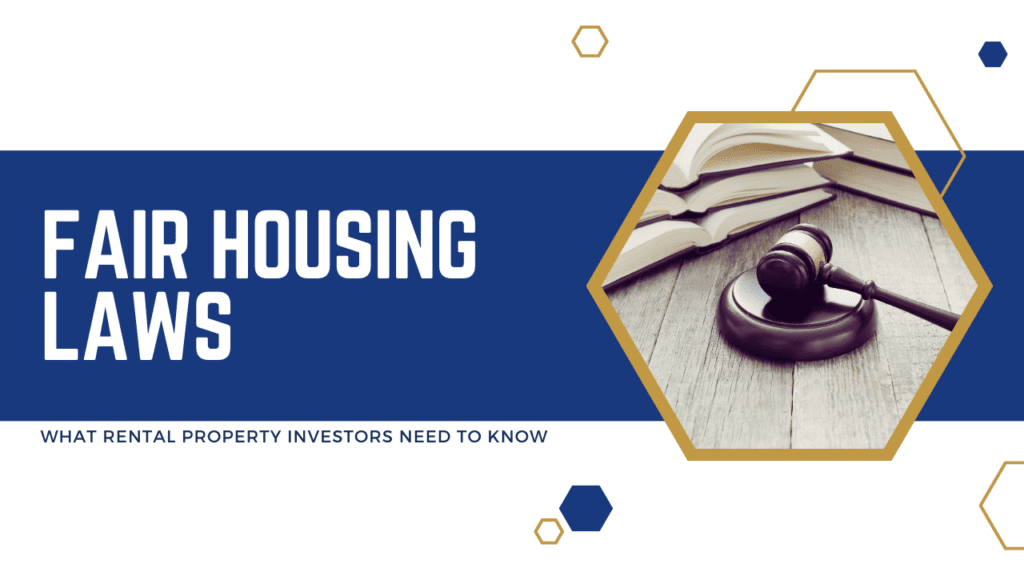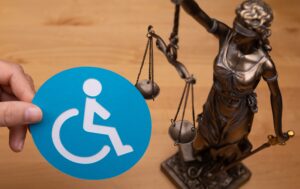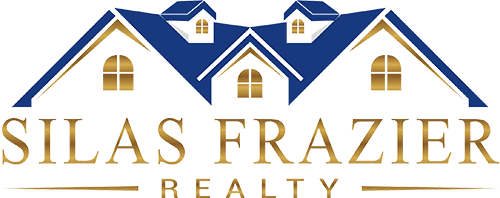 It’s very easy to make a fair housing mistake, especially if you’re managing your own rental property without the experienced help of a professional property manager in DeKalb County. Most landlords don’t set out to intentionally discriminate against people willing to rent their home, but it’s often easy to violate part of the Fair Housing Act without even realizing it.
It’s very easy to make a fair housing mistake, especially if you’re managing your own rental property without the experienced help of a professional property manager in DeKalb County. Most landlords don’t set out to intentionally discriminate against people willing to rent their home, but it’s often easy to violate part of the Fair Housing Act without even realizing it.
The way you market your property and screen your tenants is really under a microscope, and errors are costly. You need to be careful, and you need to have processes in place that will ensure you don’t accidentally treat one person different than another.
We’ve stayed up to date on all the changes in fair housing, and we have a process that’s fair, consistent, and legally compliant when we’re qualifying residents. We can help you with your fair housing concerns. Let us help you navigate fair housing laws in DeKalb County so you can avoid potential risk, liability, and lawsuits.
Here’s what rental property investors and landlords need to know.
Start with the Federal Fair Housing Act
The federal Fair Housing Act was signed into law in 1968. This landmark legislation was passed to prevent real estate agents, landlords, property managers, mortgage lenders, leasing agents, and anyone else involved in the housing industry from discriminating against tenants, buyers, or applicants based on the following protected classes:
- Color
- Race
- Disability
- Familial status
- National origin
- Religion
- Sex
This seems easy enough to incorporate into the way you rent out properties. You simply have to not discriminate, right?
It gets a bit more nuanced than that, especially when we’re talking about the language you might use in your advertising or the way you might conduct your screening. The key, as we’ll discuss, to avoiding mistakes is to have consistent policies in place that document how you handle marketing, showings, screenings, and leasing. Make sure you can demonstrate you’re objective.
Georgia Fair Housing Laws
In Georgia, the state law follows the Fair Housing Act.
Georgia fair housing laws are enforced by The Fair Housing Division of the Georgia Commission on Equal Opportunity. The laws prohibit discrimination for all the same reasons as the federal law, and
Georgia fair housing laws protect tenants when they are:
- Viewing a property or asking questions about it.
- Applying to rent a property
- Buying renter’s insurance
You have to follow fair housing laws when you’re advertising your home, talking with tenants, screening applications, and negotiating the lease agreement.
What You Need to Know about Fair Housing Mistakes in Advertising and Screening
We have been managing rental properties in Atlanta and throughout DeKalb County for more than 20 years, and in our experience, most of the fair housing problems show up when owners aren’t paying attention to the way they market their homes or to the way they screen their tenants.
Here’s what you need to know about these important processes.
- Marketing and Advertising
When you’re preparing to lease a rental home, one of the first things you’ll do is put together an advertising and marketing strategy. This is how you find tenants. It’s important to be aggressive when you list and advertise a rental home in order to minimize vacancy times and rent your home to the best possible tenant.
Don’t move so quickly, however, that you forget about fair housing. Any of your listings, marketing materials, or signs need to comply with fair housing laws.
Every listing will include square footage, number of bedrooms and bathrooms, how much the rent will be, and whether pets are accepted. You’ll talk about all the benefits to your property and give tenants a good reason to schedule a showing.
What you don’t want to do is say the home would be “great for single professionals.” You do not need or want to say it’s close to churches. This type of language can be seen as discriminatory against several of the law’s protected classes.
To avoid all possible complaints and investigations, make sure your advertising remains focused on what the property is and what it has to offer. Don’t make assumptions about who would want to live there and never talk about the types of tenants you would prefer.
- Screening Tenants
A fair housing compliant screening process starts with a set of standard rental criteria. Establish what is required from a tenant in order to be approved for your property, and document it in writing. This should be provided to any potential applicant who is interested in renting your home.
When applications begin rolling in and you have multiple tenants interested in the same property, you’ll want to be vigilant about screening each application against the same requirements. Let’s say you deny one applicant because of a 580 credit score. If you tell that tenant his credit is the reason for your denial but then you ultimately approve a tenant who has a lower credit score, you can be accused of discriminating against the tenant who was denied.
Set up the standards you seek in terms of credit, income, criminal history, and rental references. This will make it easy for you to move objectively through the application process.
Fair Housing and What it Means for Tenants with Disabilities
 Fair housing laws protect people with disabilities from being discriminated against when they’re renting a home. They also require property owners to make reasonable accommodation to provide an equal enjoyment of the home. Some examples of accommodations include:
Fair housing laws protect people with disabilities from being discriminated against when they’re renting a home. They also require property owners to make reasonable accommodation to provide an equal enjoyment of the home. Some examples of accommodations include:
- Structural modifications (i.e. shower bars)
- Reserved parking spots
- Allowing a service animal in a rental home even if that home does not allow pets
Fair housing laws can be difficult to navigate, and they change frequently. If you don’t have the time or the resources to stay up to date and compliant, you’ll need to get some professional help. At Silas Frazier Realty, we invest in ongoing education and we follow all the latest legislation and court rulings. Contact us if you need fair housing helps.
Silas Frazier Realty serves rental property owners in Atlanta, Snellville, Stone Mountain, Lilburn, Conyers, Smyrna, Marietta, Lithonia, Jonesboro, McDonough, Vinings, Brookhaven, and Tucker.
